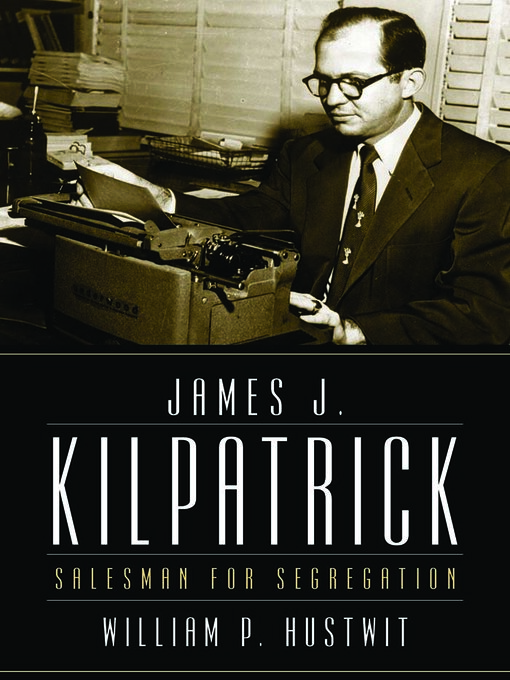Relying on archival sources, including Kilpatrick's personal papers, Hustwit provides an invaluable look at what Gunnar Myrdal called the race problem in the "white mind" at the intersection of the postwar conservative and civil rights movements. Growing out of a painful family history and strongly conservative political cultures, Kilpatrick's personal values and self-interested opportunism contributed to America's ongoing struggles with race and reform.
-
Creators
-
Publisher
-
Release date
May 1, 2013 -
Formats
-
Kindle Book
-
OverDrive Read
- ISBN: 9781469608112
- File size: 2628 KB
-
EPUB ebook
- ISBN: 9781469608112
- File size: 2628 KB
-
-
Languages
- English
-
Reviews
-
Publisher's Weekly
March 25, 2013
A visiting assistant professor of history at the University of Mississippi traces the intellectual journey of James J. Kilpatrick from regional southern journalist to one of the most prominent conservative commentators of the latter half of the 20th century. Kilpatrick focused his early career on creating supposedly acceptable public arguments against desegregation by “elevat the level of debate beyond race” and into the realm of constitutional theory—as a harbinger of FOX News and the conservative talk radio cadre, he is most interesting as an embodiment of how desperately the south fought integration. Hustwit’s analysis reveals how many of their tactics—e.g., asserting that “real affirmative action meant letting blacks help themselves”—have become standards of conservative rhetoric, and it is sobering to discover how readily the mass media and society at large accepted Kilpatrick’s overt racism, even as late as 1963. (After Martin Luther King Jr. delivered his “I Have a Dream” speech, Kilpatrick wrote a solicited article for the Saturday Evening Post entitled “The Hell He Is Equal.” To the magazine’s credit they decided in the wake of the Birmingham church bombings not to publish it.) Hustwit’s history will likely find a limited scholarly audience, but it represents an important aspect of the Civil Rights movement. 9 illus.
-
Formats
- Kindle Book
- OverDrive Read
- EPUB ebook
Languages
- English
Loading
Why is availability limited?
×Availability can change throughout the month based on the library's budget. You can still place a hold on the title, and your hold will be automatically filled as soon as the title is available again.
The Kindle Book format for this title is not supported on:
×Read-along ebook
×The OverDrive Read format of this ebook has professional narration that plays while you read in your browser. Learn more here.

